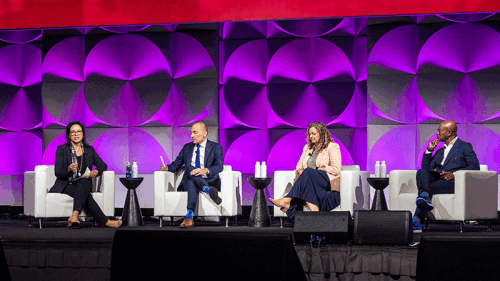ULI has hit the ground running in 2015, with new products and activities that reinforce our focus on keeping the organization energized, innovative, and, most important, member-focused. We are committed to providing what you want and need from your Institute, and we are aiming to ensure that our offerings have practical, take-home value that is useful for your business operations and your community involvement.
Just this month, we are making available two new products that advance ULI’s ongoing work on housing and building healthy communities—the Housing Matters website portal, accessible at howhousingmatters.org by the end of February; and the Building Healthy Places Toolkit, now downloadable from uli.org.
Housing Matters, created with a generous grant from the John D. and Catherine T. MacArthur Foundation, is a website offering up-to-date, easily searchable research and news on a broad range of housing topics. The new knowledge-sharing tool, which is managed by the ULI Terwilliger Center for Housing, emphasizes the connection between housing and other quality-of-life issues, including education, health, economic opportunity, and thriving neighborhoods. This focus is what distinguishes Housing Matters from repositories of housing data and information—it goes beyond statistics and facts to show the impact that housing has on every aspect of people’s day-to-day lives. I am very excited about the potential of this website to strengthen our knowledge-sharing initiatives related to housing, help us increase the scale and scope of our housing activities, and reinforce the connection between housing and other sectors.
The Building Healthy Places Toolkit, which builds on previous material published as part of ULI’s Building Healthy Places Initiative, is a resource of recommendations to encourage design and development that promotes healthy lifestyle choices. The toolkit shows how to pursue healthy development practices by outlining specific, practical, and evidence-based strategies that can improve health outcomes. This publication reflects the Institute’s tradition of sharing nuts-and-bolts information that ultimately results in communities that are more prosperous, sustainable, and livable.
Now offered in booklet form, the toolkit will offer enhanced features on its own dynamic, interactive website by the 2015 Spring Meeting.
I encourage you to visit the Housing Matters portal and to download the Building Healthy Places Toolkit, and to let us know how we can improve these products. Your input is critical to ensure that we are meeting—and hopefully surpassing—your expectations for what we include in ULI’s program of work.
We are continuing to expand our capacity to gather and share knowledge globally: Just a few days ago, ULI hosted its Midwinter Meeting in Paris. Held immediately after the ULI Europe conference, it marked the first time this annual convening of trustees and board members has been held outside the United States. The event featured two full days of programming around issues that reflect a priority topic for ULI—urban transformation resulting from pivotal factors driving change such as demographics, technology, health, education, and politics, and how these factors affect all sectors of real estate.
A diverse, engaging lineup of speakers informed the dialogue, including London Mayor Boris Johnson and former Miami Mayor Manny Diaz, who shared their visions on the future of world cities; and 2014 ULI J.C. Nichols Prize recipient Judith Rodin, president of the Rockefeller Foundation, who spoke on strengthening the resilience of cities around the globe. Their insights set the stage for discussions on how best to strengthen the Institute’s role as the leading expert on urban growth in the 21st century.
We are taking what we learned and will be applying it to ULI’s entire program of work—from research topics to advisory panel assignments to major meeting agendas—to ensure that all ULI members benefit from this dynamic knowledge-sharing experience.
We also are starting 2015 with some exciting additions to ULI’s staff, each of whom will bring fresh ideas and perspectives to help us advance the Institute’s mission around the globe:
Lisette van Doorn, a highly regarded real estate investment professional with experience across Europe, is now on board as ULI Europe’s chief executive. Lisette comes to us from LIRE, her own consultancy business, which advised international institutional real estate investors and fund managers on strategy, organizational optimization, and portfolio structuring. Prior to that, she was the country manager for CBRE Global Investors.
Stockton Williams has joined the staff as the new executive director for the ULI Terwilliger Center for Housing. He most recently served as managing principal at HR&A Advisors, where he provided strategic advisory services to communities on a wide range of innovative housing, economic development, and land use initiatives across the country. He also was a senior adviser at the U.S. Department of Energy and the U.S. Department of Housing and Urban Development, and held senior positions at Living Cities and Enterprise Community Partners.
Sarene Marshall has joined ULI as the executive director for our new Center for Sustainability, which includes the ULI Greenprint Center for Building Performance and the Urban Resilience Program. Sarene was a senior advisor at the Nature Conservancy, where she led its efforts to reduce its environmental footprint by managing carbon, water use, waste, and recycling.
The progress we have made so far in 2015 is, of course, just a start. We are gearing up for a very busy, impactful year—one in which we will dive deeper into existing areas of interest such as healthy communities, and offer more knowledge-sharing tools for members at all phases of their careers. We are going to stretch ourselves even further, entering new markets, collaborating with more partners, and—above all—making sure that ULI is your go-to choice for thought leadership on real estate and land use.

